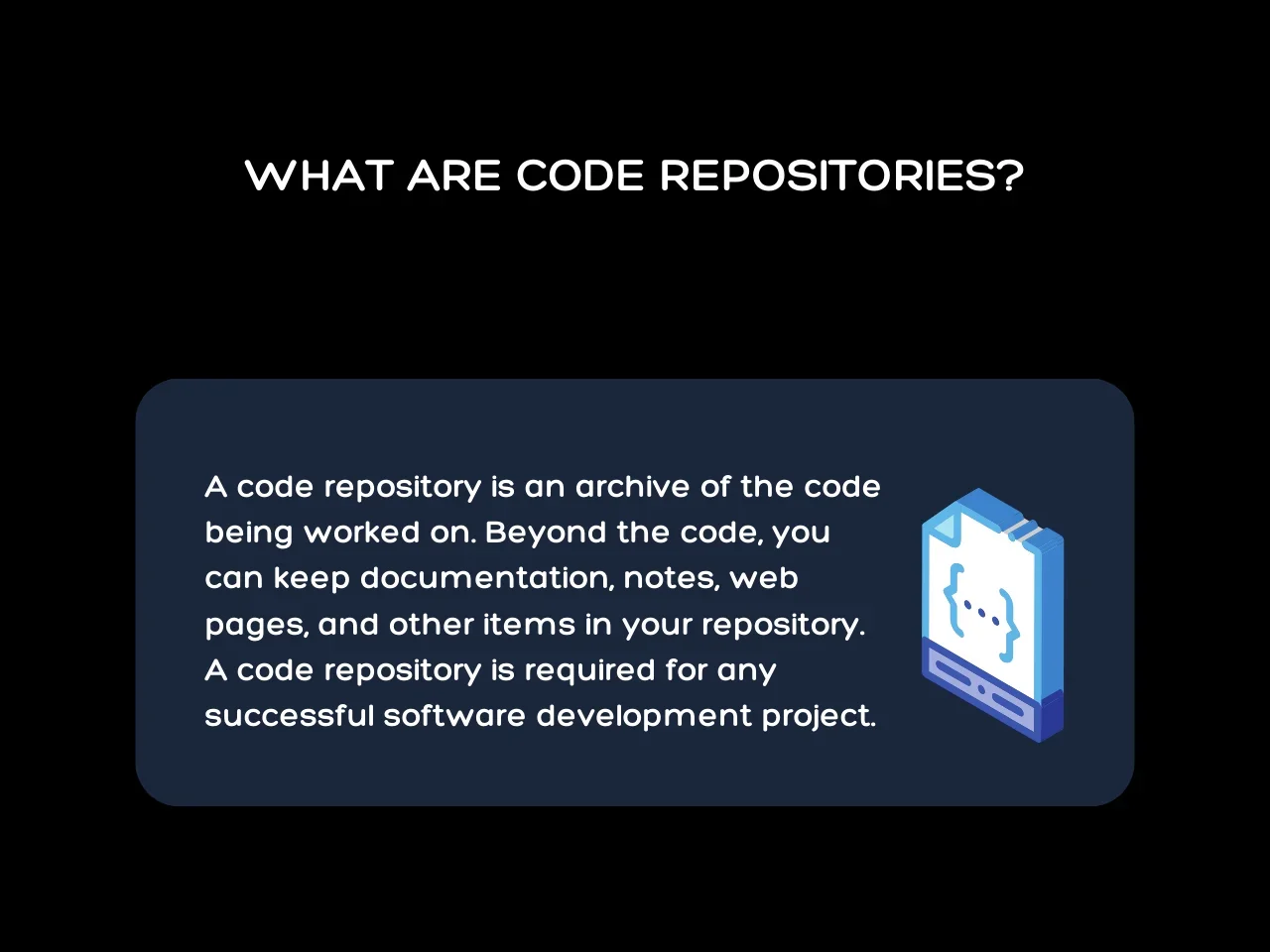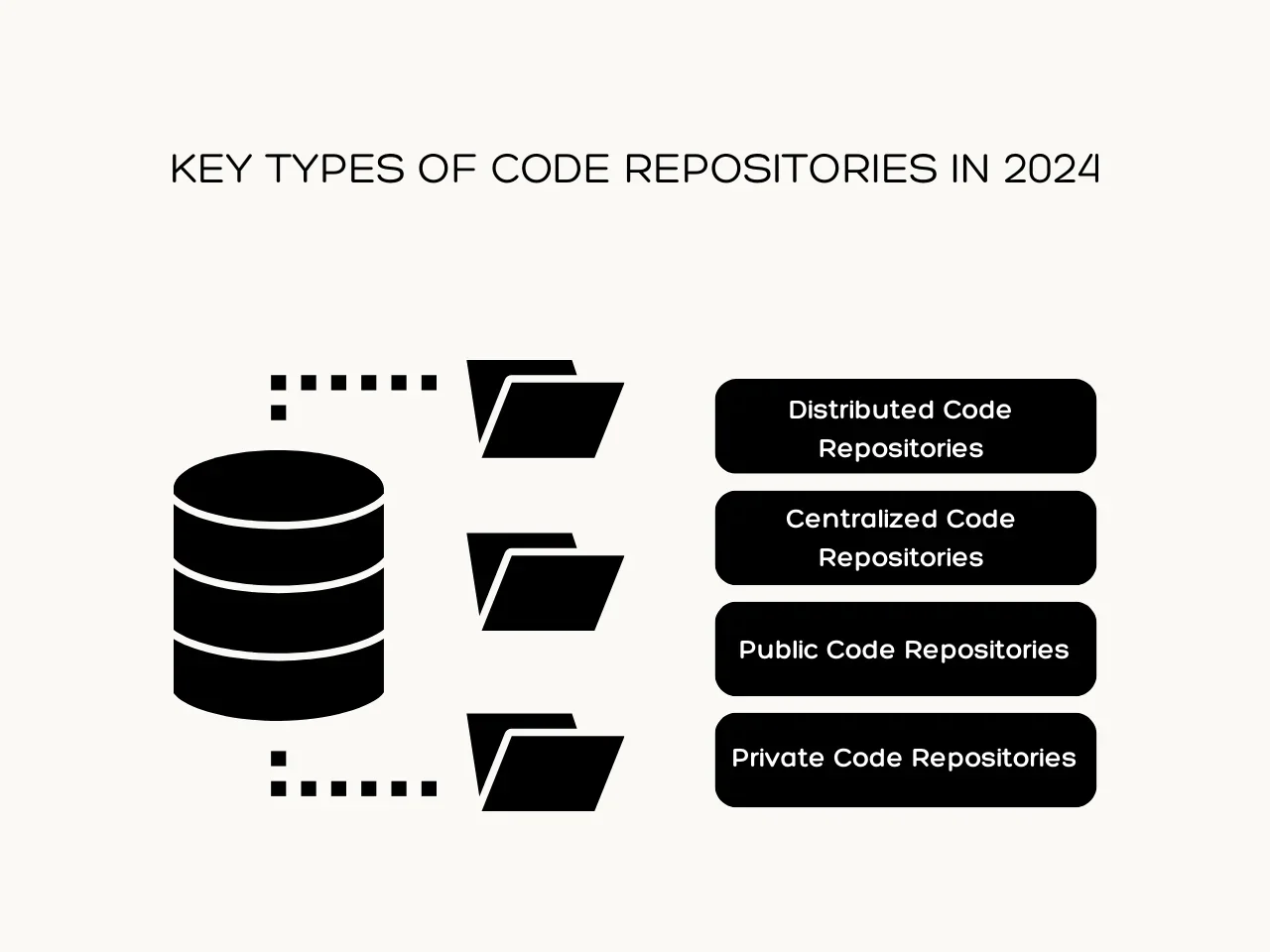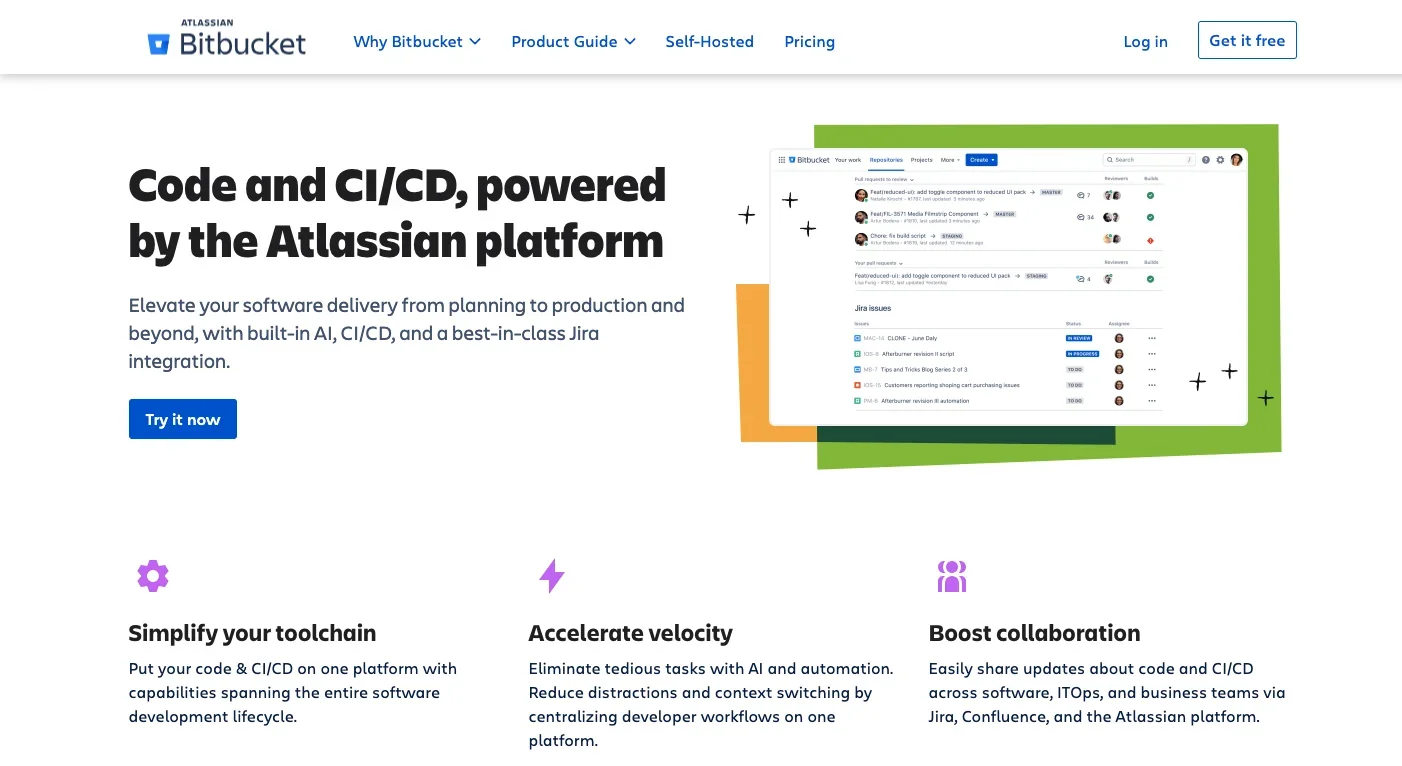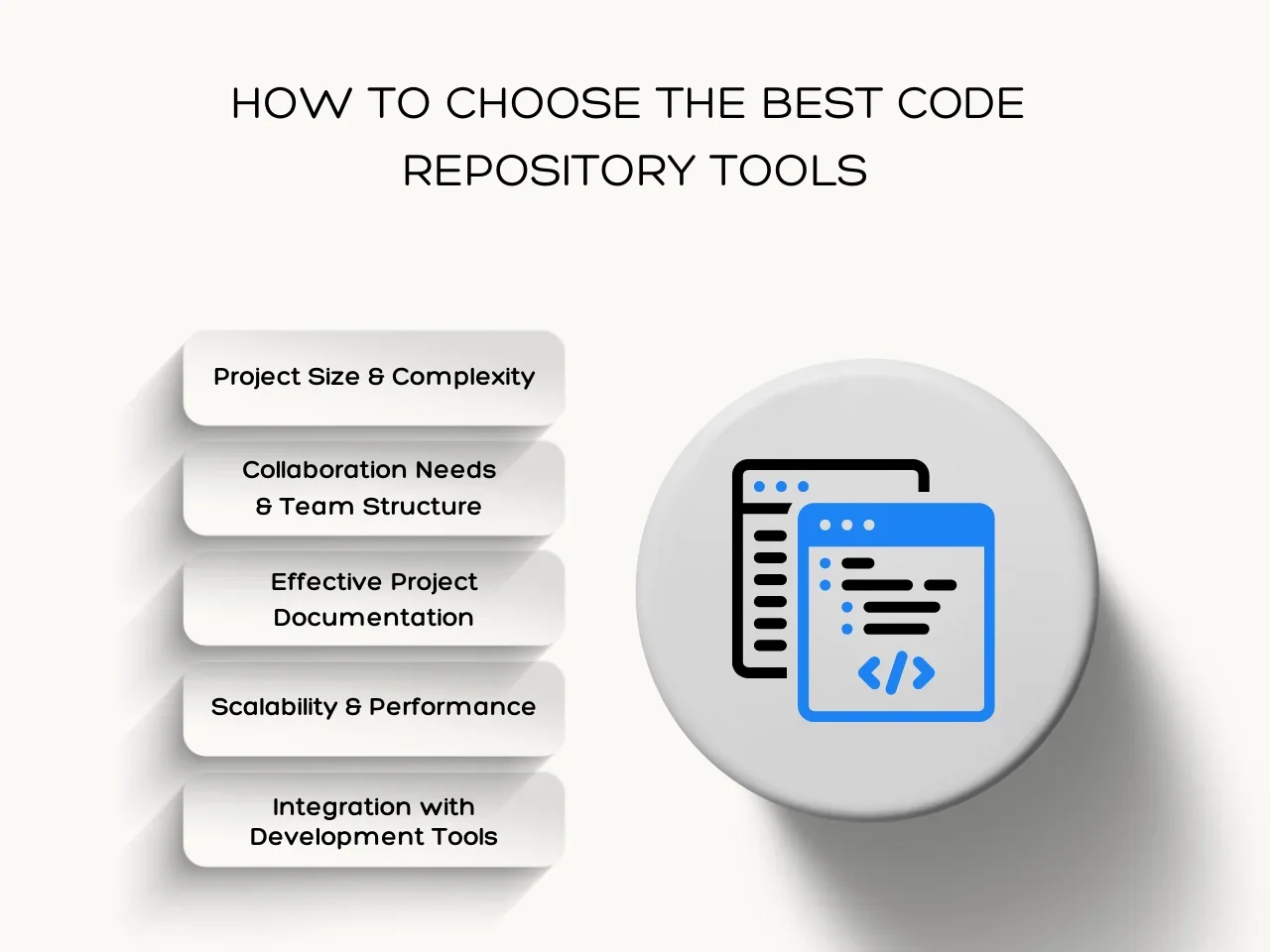Code repositories are an invaluable resource for developers, serving as the backbone of modern software development. They provide a centralized location where multiple team members can store, manage, and collaborate on code. Whether you're working on an open-source project or within a private organization, code repositories facilitate version control, allowing developers to track changes, revert to previous versions, and work simultaneously without conflicts.
Aloa, a software development outsourcing company, uses code repositories to ensure seamless collaboration and efficient project management across distributed teams. These code repositories enable our team to facilitate continuous integration and deployment, allowing for rapid development and delivery of software solutions.
Applying our expertise in using code repositories, we’ve put together this blog to share our knowledge and insights on the topic. We’ll go through what code repositories are, their importance for developers, and the top source code repository tools available. We’ll also quickly go through the considerations to take when choosing the best tool to use for your project.
Let’s get started!
What are Code Repositories?

A code repository is an archive of the code being worked on. Beyond the code, you can keep documentation, notes, web pages, and other items in your repository. A code repository is required for any successful software development project.
Using a house as an analogy, we can break things down further. The house itself would be analogous to your software product as a whole, with the architecture and materials of the house being analogous to the code. Where does your house go? On your land. In our analogy, your repository is like the land that your house sits on.
A repository (or repo for short) can be public or private. There is something special to say about collaboration in the developer community. You see levels of collaboration amongst coders taking steps beyond many other industries.
You will often find public repos, where people give their code to anyone. Sometimes, people keep their repos public because it is an accomplishment for others to implement your code in their product. In other cases, open repos help stimulate innovation, as quicker innovation can happen when many people are working on the same project.
Key Types of Code Repositories in 2024
In 2024, code repositories will be essential tools for software development, enabling efficient collaboration, version control, and project management. Here are the key types of code repositories that developers and organizations should understand, along with relevant subtypes that cater to specific needs:

1. Distributed Code Repositories
Distributed code repositories allow individual developers on a team to have a complete copy of the codebase on their devices. Changes are made and committed locally before being pushed to a shared repository where other team members can access them.
This type of code repository is best for open-source projects since it allows many contributors to work independently and efficiently. Developers can clone the repository, make changes locally, and push their contributions without relying on a central server.
2. Centralized Code Repositories
Centralized code repositories store the entire codebase in a single location, typically on a central server. All developers commit their changes directly to this central repository. With this type of code repository, there are two subtypes to consider.
The first subtype is subversion (SVN). This popular centralized control system allows developers to check out files, make code changes, and commit them back to the central repository. The second subtype is Perforce, a centralized version control system known for handling large codebases and binary files. Perforce is often used in game development and large enterprises.
Using a centralized repository provides developers with clear oversight and control, making them suitable for environments where security and compliance are critical. However, they can become a single point of failure if the central server is inaccessible or overloaded. This model is generally simpler but less flexible than distributed systems. Usually, this type of code repository is used in corporate environments where strict access controls are necessary.
3. Public Code Repositories
Public code repositories are accessible to anyone, which allows developers to share code with a global community. These repositories are used for open-source projects where a high level of collaboration is encouraged.
This repository type is ideal for open-source programming projects like Python, where developers worldwide can contribute, code review, and use the code. These repositories foster innovation and community-driven development.
4. Private Code Repositories
Private code repositories restrict usage to specific users or teams within an organization, ensuring that the code is not accessible to the public. These repositories are usually applied in proprietary software development, such as for projects initiated by enterprises developing proprietary software, such as a tech company working on a new AI-powered product. Using a private code repository lets them protect their intellectual property and control who can access the code.
Why are Code Repositories Important for Developers?
So, what's so special about the different repo hosting services out there, and why do you even need one?
Think back to the house analogy. If you don't care about getting access to the repo, that's like saying the construction company can build YOUR house in their own backyard. How will you get the house transferred from their land to yours? And if the construction company never gives you their address, you might never see the house.
But suppose you build the house in the cloud (OK...the analogy is starting to break down). In that case, you can access it from anywhere, and transferring ownership is as easy as pressing a button. Think of this like building your house on a futuristic hovering plot of land that can be transported anywhere with a click of a button.
We find three repository hosting services to be the most common and feature-rich: GitHub, GitLab, and Bitbucket. All three are great services, but each has its pros and cons. If you want to compare GitHub, GitLab, and Bitbucket for working with external or offshore teams, look no further!
Top Source Code Repositories for Developers in 2024
GitHub

GitHub is one of the most popular code repositories. Aloa uses GitHub for many of our client projects. It is a great repository for documentation and collaboration. GitHub is a great starting spot if you work in teams with other developers.
GitHub offers a list of popular features:
- Commit history is visible
- Pull requests
- Issue tracking
- Email notifications
- Robust and well-documented API
- Unlimited private repositories
- A wide array of workflow automation and CI/CD through GitHub Actions
Aloa uses GitHub repo for our client projects because of their free team plan, which includes unlimited private repositories and collaborators. Private repositories are important for client work because clients often do not want their project code exposed to the public.
Previously, you could only invite 3 collaborators to private repos, making it a poor choice for outsourcing. Now, in 2024, anyone can start their own private repository without paying a penny or worrying about collaboration restrictions.
GitHub also recently added GitHub Actions, a comprehensive suite of workflow automation and CI/CD tools. Previous critics of GitHub had lamented the fact that there were no built-in CI/CD tools, but GitHub has now addressed this concern.
GitLab

GitLab is also a very common repository. Aloa uses GitLab for some of our clients as well. Just as GitHub does, GitLab offers many of the same features: visible commit history, pull requests, issue tracking.
GitLab has a slightly more user-friendly interface than GitHub. GitLab offers robust CI/CD pipelines and workflow automation, which was previously their biggest competitive advantage over GitHub. We recommend GitLab for highly technical teams who aren't planning on collaborating outside of their organization as much, but GitHub wins overall due to their fair pricing and similar feature set.
Bitbucket

Like GitLab and GitHub, Bitbucket server also offers a free tier for private repositories. Aloa uses Bitbucket for a few of our Clients as well. Another bonus to Bitbucket is that it has a REST API to build third party applications. You can also search for code in a dynamic and efficient manner.
Like GitHub, Bitbucket offers many similar features:
- Commit history
- Pull requests
- Issue and bug tracking
In recent years, GitHub and GitLab have made improvements to their UI that, unfortunately, put Bitbucket in the back seat. Bitbucket has been heavily criticized in the past for their slow UI and feature focus on managers and not developers. However, if your team already uses Jira or other Atlassian products, Bitbucket might be the best option.
How to Choose the Best Code Repository Tools
Choosing the best code repository tools to use is more than just about knowing what hosting services are available. It's also about understanding your project requirements, team dynamics, and long-term goals. The right tool should align with your development workflow, offer the necessary features, and scale with your project as it grows.
Here are some key factors to consider when selecting the best code repository tool for your needs:

Consideration #1: Project Size and Complexity
When selecting a code repository tool, one of the first factors to evaluate is the size and complexity of your project. Larger and more intricate developer projects require robust code repository hosts that can handle extensive codebases, multiple contributors, and sophisticated workflows.
The right repository tool should enable your team to manage these challenges in an organized manner, ensuring that your codebase remains maintainable and scalable as the project evolves.
Choosing a repository host that can accommodate the demands of your project ensures that your development process remains smooth, organized, and capable of supporting future growth.
Consideration #2: Collaboration Needs and Team Structure
Collaboration needs and team structure are critical factors to consider when choosing the best code repository tool. The way your team members are organized and how they collaborate on projects will impact whether or not your chosen tool is effective. Whether your team is located in the same place, distributed, or working across different time zones, the right code repositories should facilitate seamless collaboration, effective communication, and efficient workflow management.
Consideration #3: Effective Project Documentation
Effective project documentation is another key consideration when evaluating collaboration needs. In a collaborative environment, maintaining clear, accessible, and up-to-date documentation is essential for keeping all team members aligned. A code repository tool that supports project documentation features, such as wikis or integrated document storage, helps ensure that everyone on the team has access to the necessary information. This not only improves collaboration but also enhances the overall quality and consistency of the project.
Consideration #4: Scalability and Performance
As your project evolves, the code repository host must scale seamlessly to accommodate the growing demands of your development process. This includes managing larger files, longer commit histories, and more frequent merges. A repository that cannot scale effectively may lead to slow performance, increased conflict resolution times, and, ultimately, a decrease in productivity.
Consideration #5: Integration with Development Tools
A well-integrated code repository host allows your team to work more efficiently by reducing the need to switch between different platforms and tools. It enables smoother workflows, automated processes, and better communication across the development lifecycle. Additionally, integration with project management tools is essential for tracking progress, managing tasks, and keeping the team aligned. This integration keeps project documentation up-to-date and ensures that everyone has visibility into the development process.
Key Takeaway
We hope this short comparison was helpful in both understanding code repositories and choosing the best repo hosting service for you. There are more in-depth feature comparisons elsewhere on the internet, but we wanted to provide our perspective comparing GitHub, GitLab, and Bitbucket for working with external or offshore teams.
In many cases, you're going to choose a code repo hosting service based on what your developers prefer. If you want free repositories, then GitHub or GitLab are going to be your best options.
If you have any specific questions, or want to get our take on repositories, feel free to reach out to us at sales@aloa.co.

